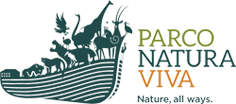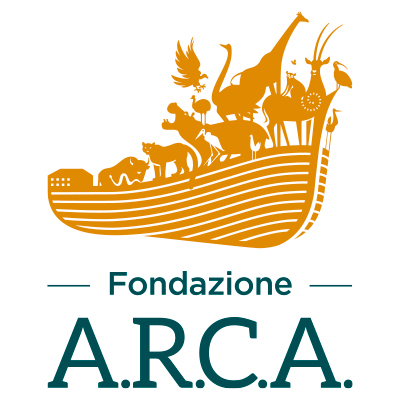Cheetah Project
Cheetah is the world’s fastest land mammal and can reach a speed up to 103 km per hour; however, its uniqueness is not much in the speed but more in its capacity to move in zigzag speeding up and slowing down in a very short time. Listed as “Vulnerable” in the IUCN Red List, cheetah counts among the main threats to its survival the hunting by local farmers to protect their livestock, on which cheetahs sometimes feed.
Parco Natura Viva donates its contribution to protect the cheetah by supporting the work carried out by the Cheetah Conservation Fund in Africa.
Parco Natura Viva donates its contribution to protect the cheetah by supporting the work carried out by the Cheetah Conservation Fund in Africa.
For years, Parco Natura Viva has been involved in the conservation of cheetahs, both by raising public awareness about the protection of this species and by supporting the Cheetah Conservation Fund (CCF), a non-profit foundation dedicated to safeguarding this species in the wild.
Funded in Namibia in 1990 by Dr Laurie Marker, CCF is the institution par excellence for the conservation of cheetahs and their natural habitat and is dedicated to the development of best practices in the fields of research, conservation and education in order to decrease the conflict between wild animals and local communities. CCF carries out various conservation and habitat restoration activities, it raises two breeds of dogs, the Anatolian shepherd and Kangal, so that they may help local farmers to protect their livestock from cheetahs, thus reducing their killing. At CCF’s research and education centre, education and awareness programmes for local populations are carried out, as well as training courses for students, and for farmers and shepherds. Furthermore, the centre implements research and monitoring activities of cheetahs’ wild populations, along with studies on the genetics of the species at the Life Technologies Conservation Genetics Laboratory, the only fully equipped genetic laboratory in a conservation centre in Africa.
Funded in Namibia in 1990 by Dr Laurie Marker, CCF is the institution par excellence for the conservation of cheetahs and their natural habitat and is dedicated to the development of best practices in the fields of research, conservation and education in order to decrease the conflict between wild animals and local communities. CCF carries out various conservation and habitat restoration activities, it raises two breeds of dogs, the Anatolian shepherd and Kangal, so that they may help local farmers to protect their livestock from cheetahs, thus reducing their killing. At CCF’s research and education centre, education and awareness programmes for local populations are carried out, as well as training courses for students, and for farmers and shepherds. Furthermore, the centre implements research and monitoring activities of cheetahs’ wild populations, along with studies on the genetics of the species at the Life Technologies Conservation Genetics Laboratory, the only fully equipped genetic laboratory in a conservation centre in Africa.
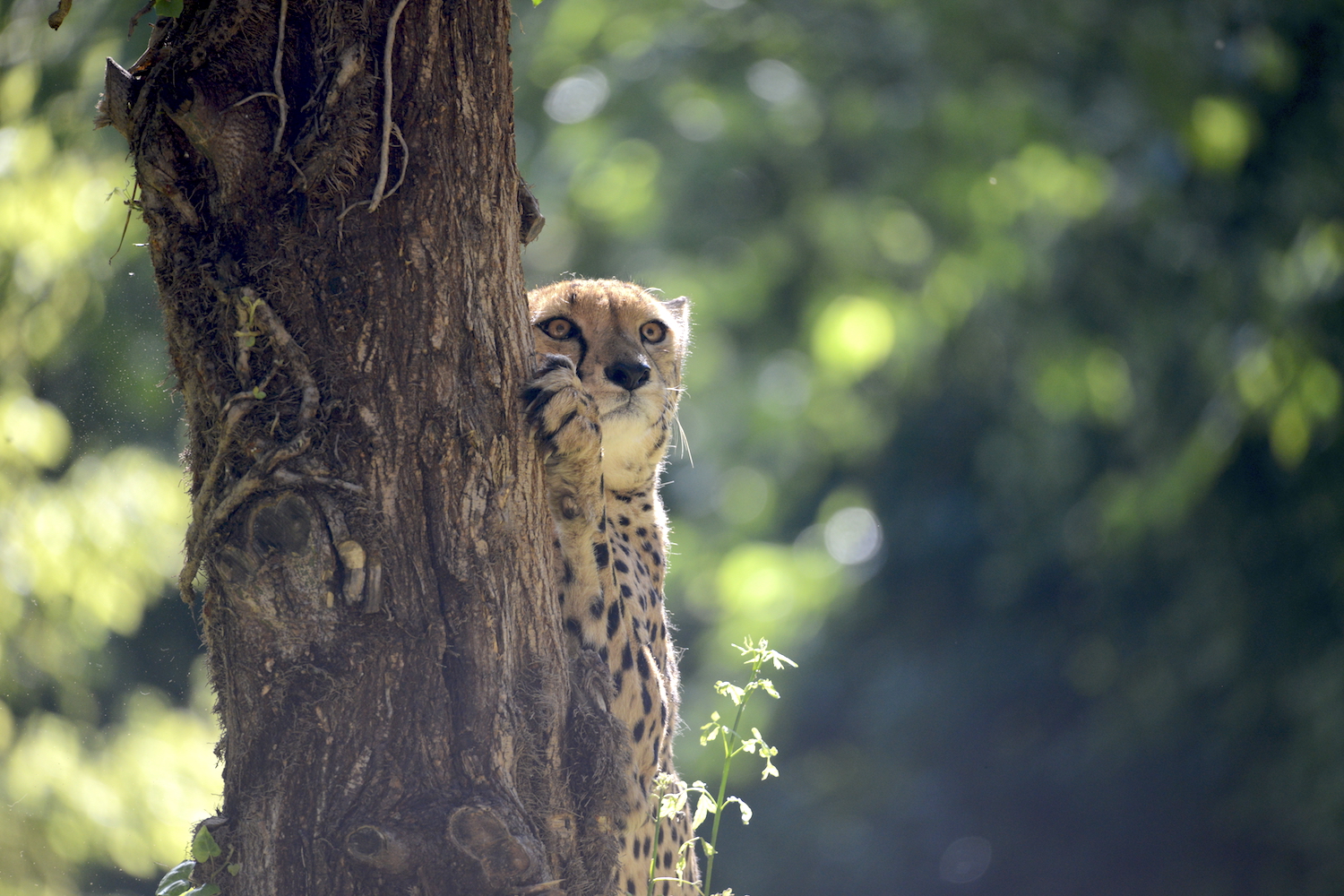 |
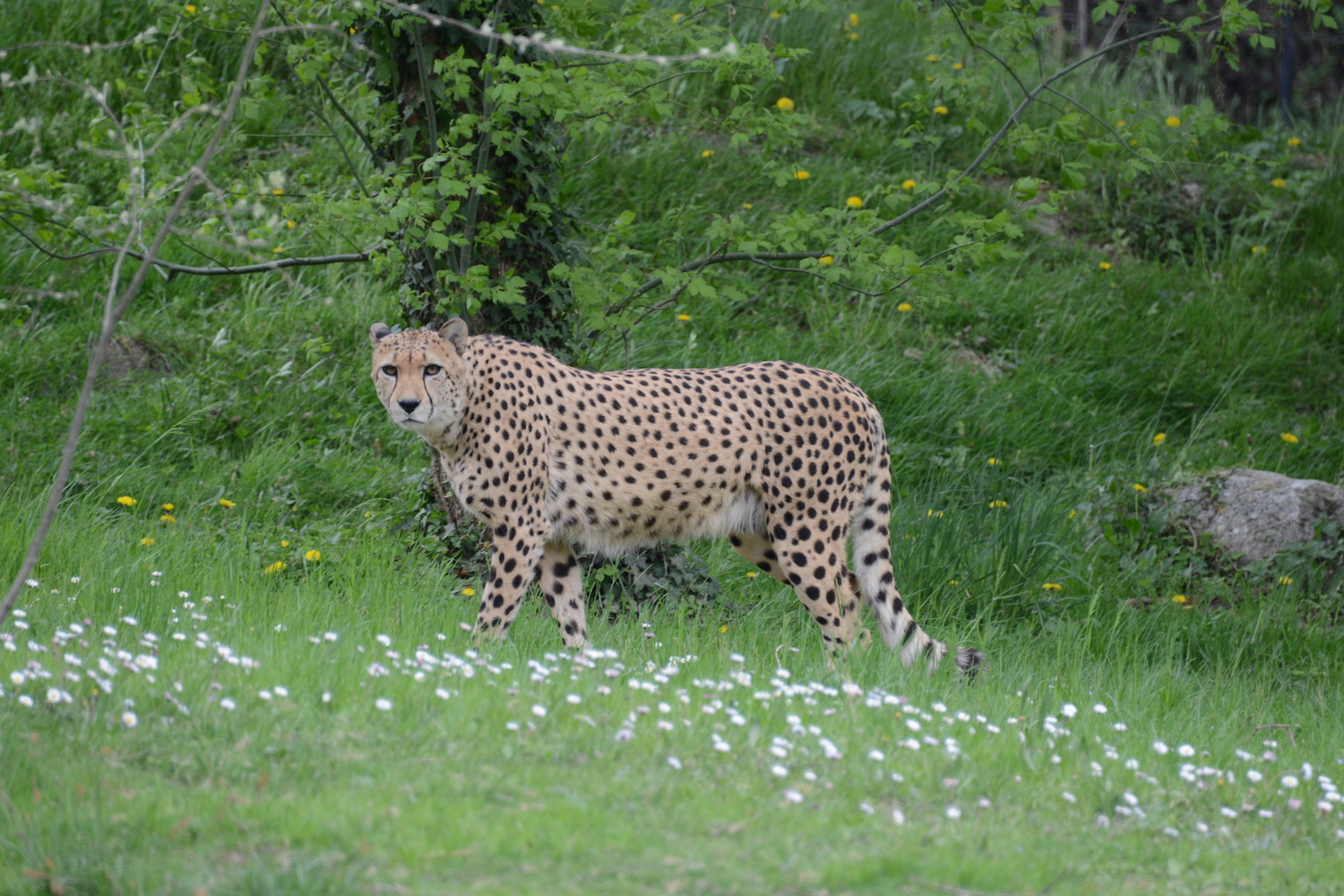 |
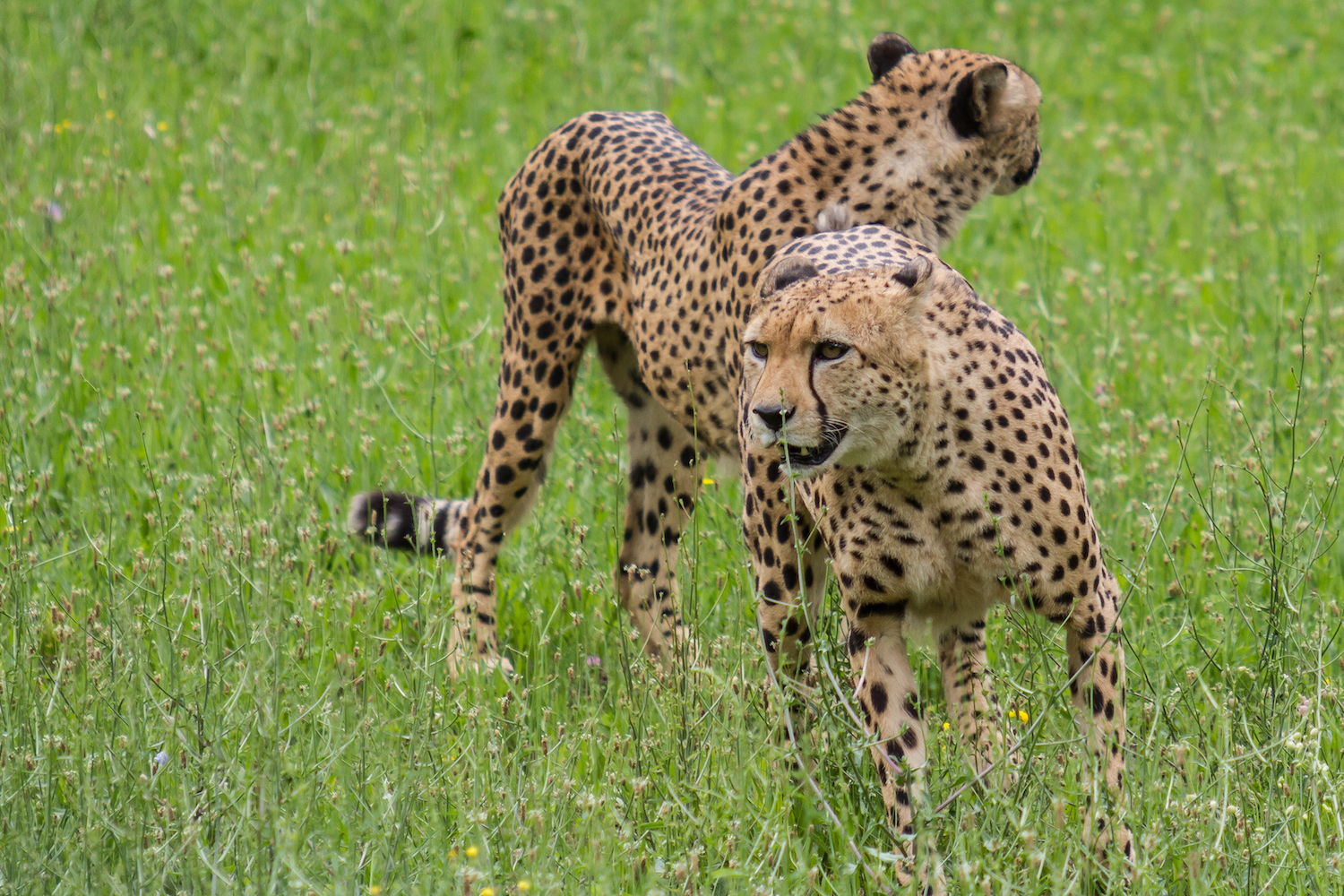 |
The Cheetah Conservation Fund also hosts some individuals arrived as orphan cubs, injured or kept as pets for several years. Through a rehabilitation programme some cheetahs are reintroduced in nature, however for some of them this is not a possibility and they remain at the centre as ambassadors of this incredible species.
Cheetah (Acinonyx jubatus) is listed as “Vulnerable” in the IUCN Red List since 2014, and the total of the individuals living in the wild does not reach 10,000. Cheetahs have disappeared from vast areas of their historical distribution and their density is very low. Now in Africa they cover only the 10% of their original range, whereas in Asia it’s possible to find small populations only in Iran’s central deserts. Given their low density, cheetahs need very wide areas to survival, making them particularly sensitive to habitat loss and fragmentation. Furthermore, Namibia and Zimbabwe’s communities persecute cheetahs as they hold them responsible to the loss of livestock.
Genetic studies of cheetahs have shown that there is very little genetic variation within the species, possibly due to a severe bottleneck event during its evolutionary history; this complicates even further the protection of this beautiful carnivore, making it more susceptible to diseases and environmental alterations.
Genetic studies of cheetahs have shown that there is very little genetic variation within the species, possibly due to a severe bottleneck event during its evolutionary history; this complicates even further the protection of this beautiful carnivore, making it more susceptible to diseases and environmental alterations.
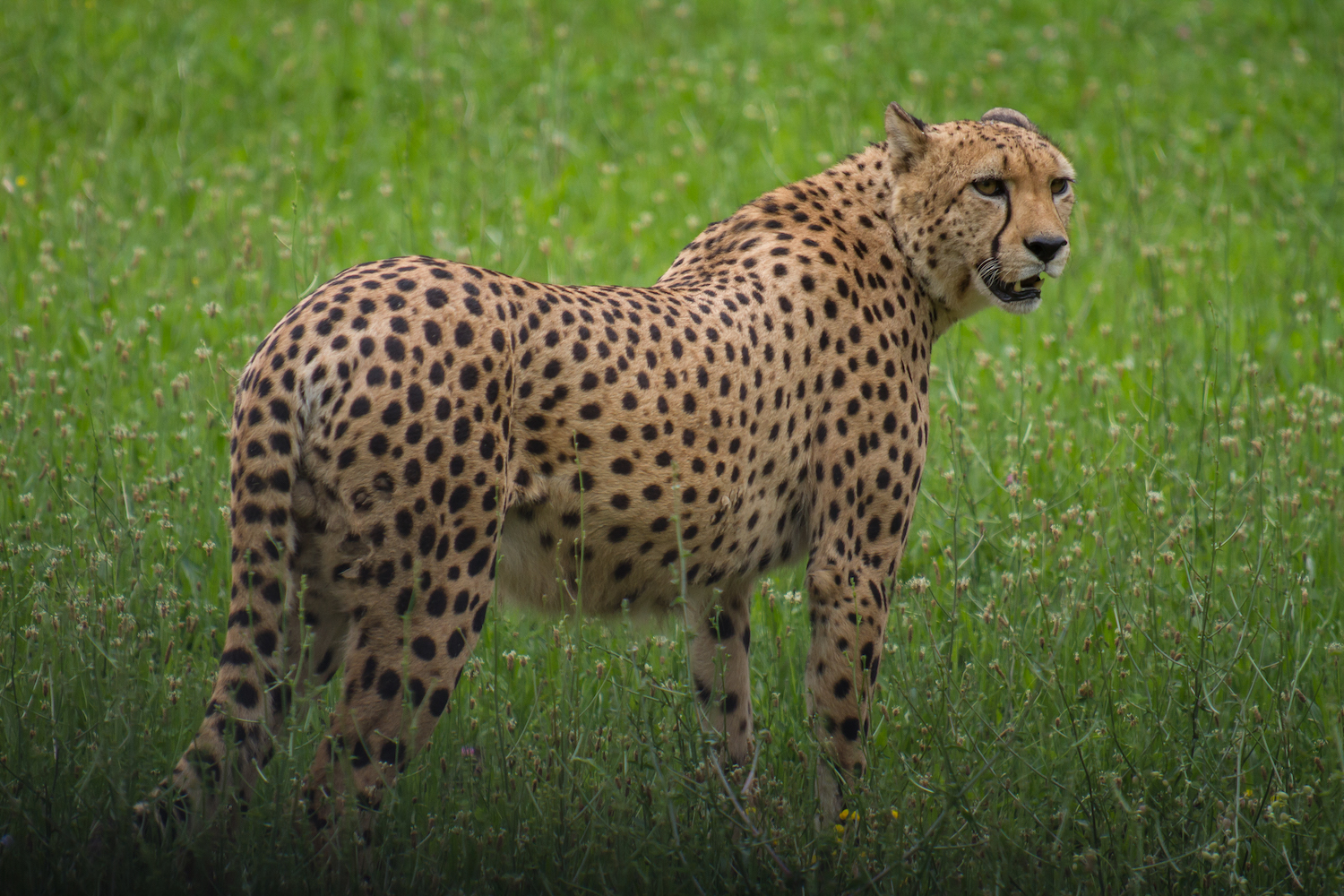 |
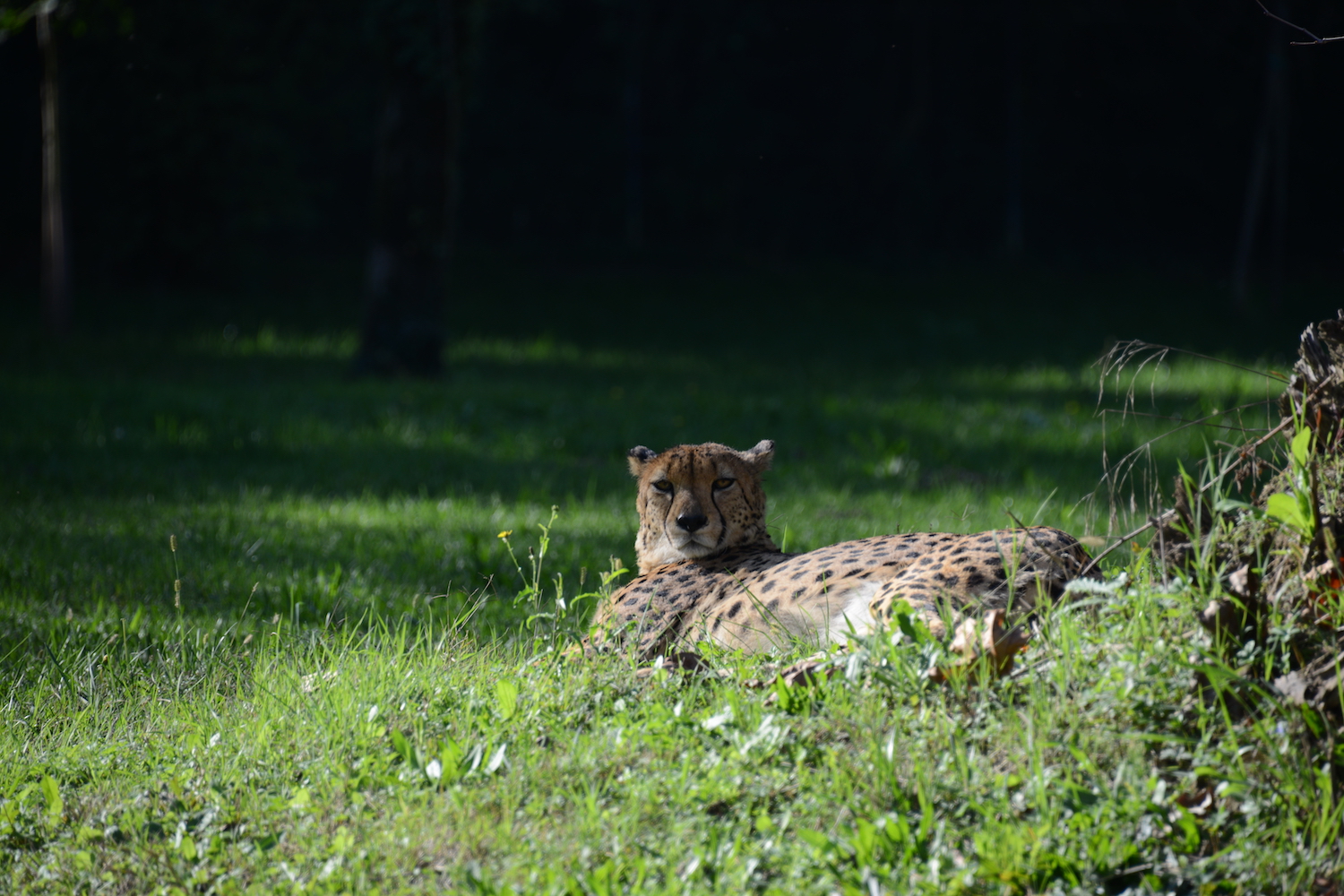 |
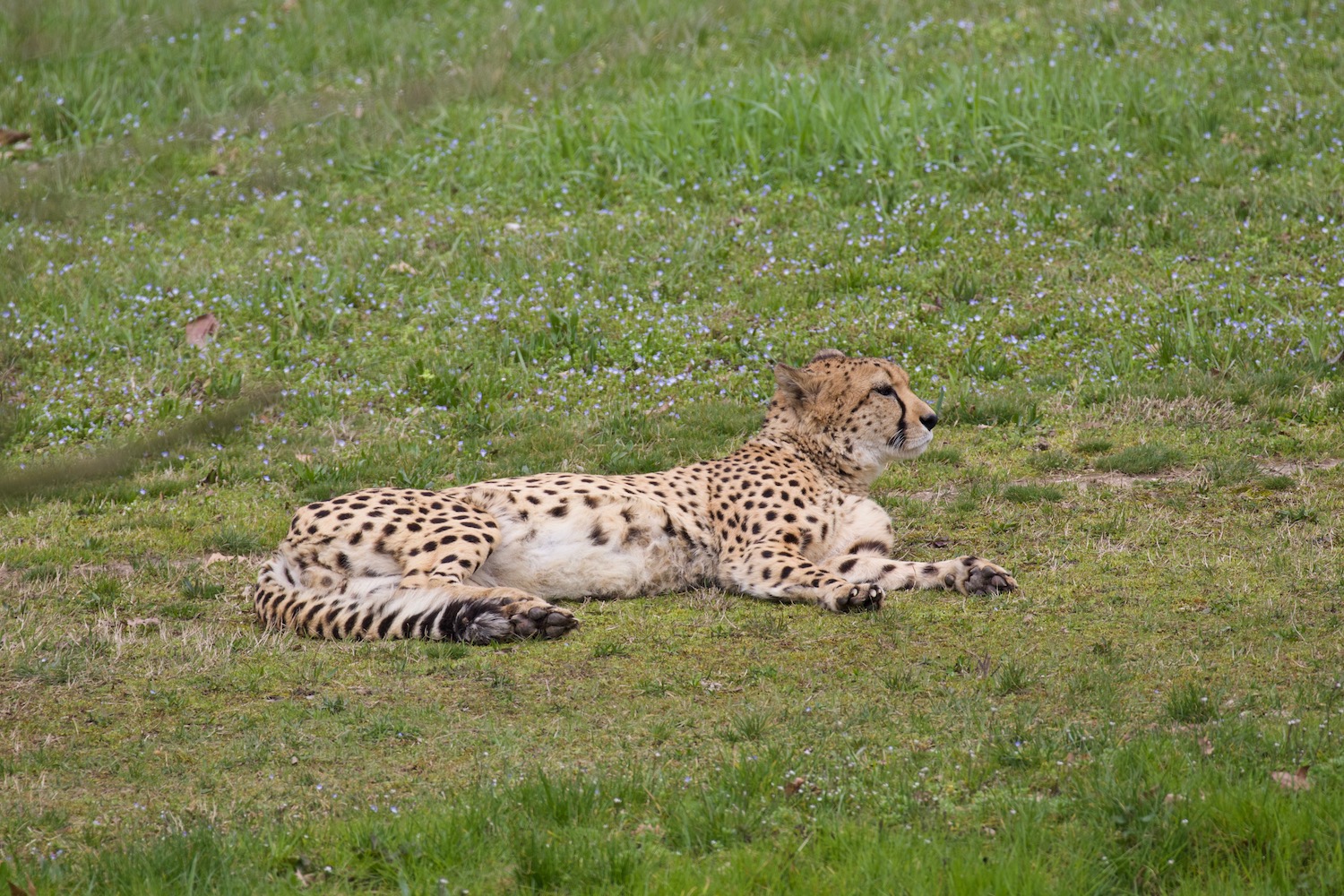 |
Parco Natura Viva hosts cheetahs since 2009 within the European programme for ex-situ conservation EEP. Today the group of cheetahs in the park consists of three individuals: Mookane, born in 2010 at La Boissière du Doré park in France, Lex and Nero, two brothers born in 2014 at the Royal Burger Zoo in the Netherlands. They live in a large exhibit in the Safari park full of plants, rocks and bushes in which they can hide. Nevertheless, it’s very easy to see them when they lie down on the high grass with only their heads up to control the surrounding environment: a very frequent behaviour seen in nature that allows them to remain hidden from the sight of potential preys.
Hosting a non-reproductive group of male cheetahs at the park is very important because it allows other Zoological Parks involved in the EEP programme to maintain stable reproductive groups, thus avoiding competition over females and guaranteeing a future to this very fragile species.
Hosting a non-reproductive group of male cheetahs at the park is very important because it allows other Zoological Parks involved in the EEP programme to maintain stable reproductive groups, thus avoiding competition over females and guaranteeing a future to this very fragile species.
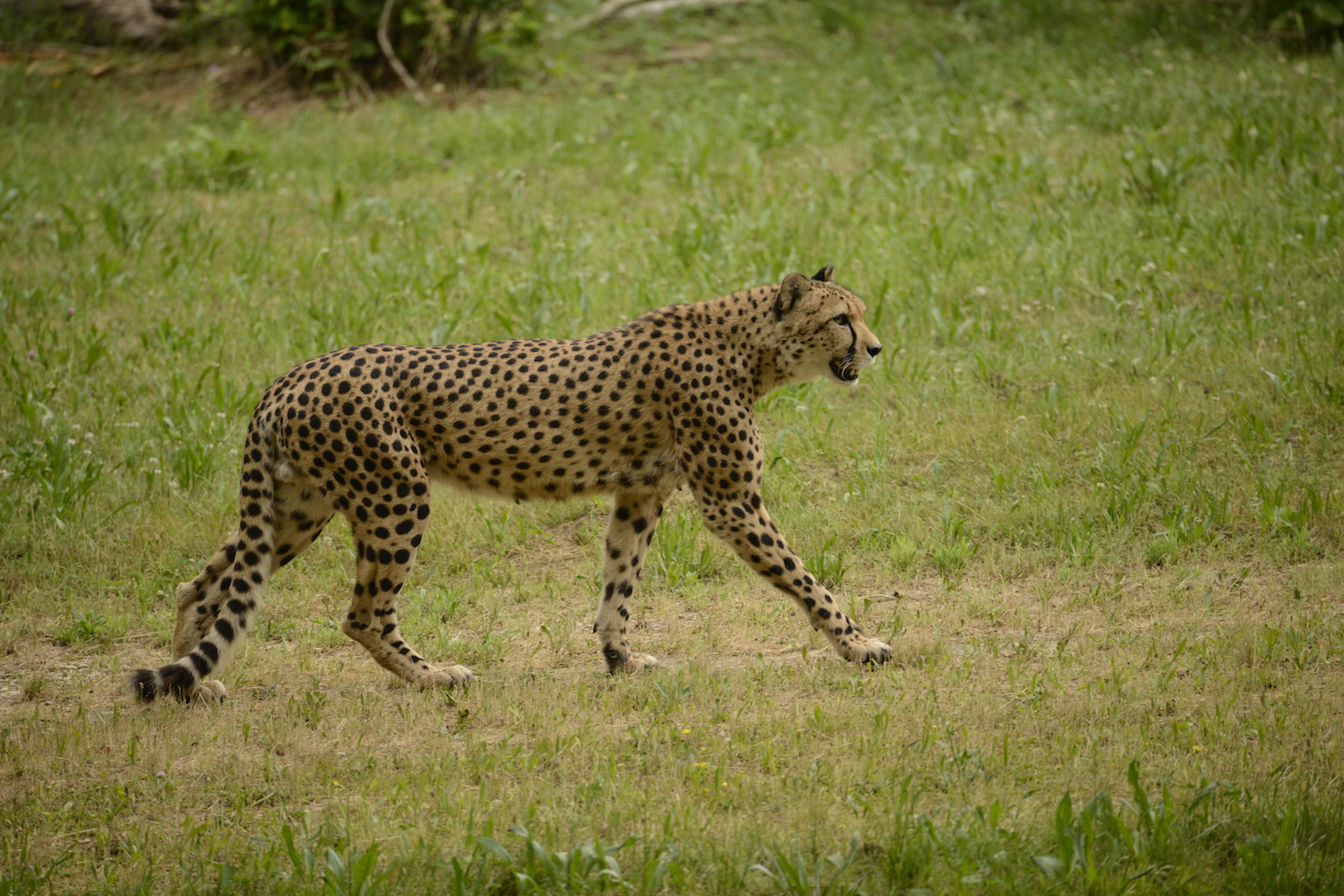 |
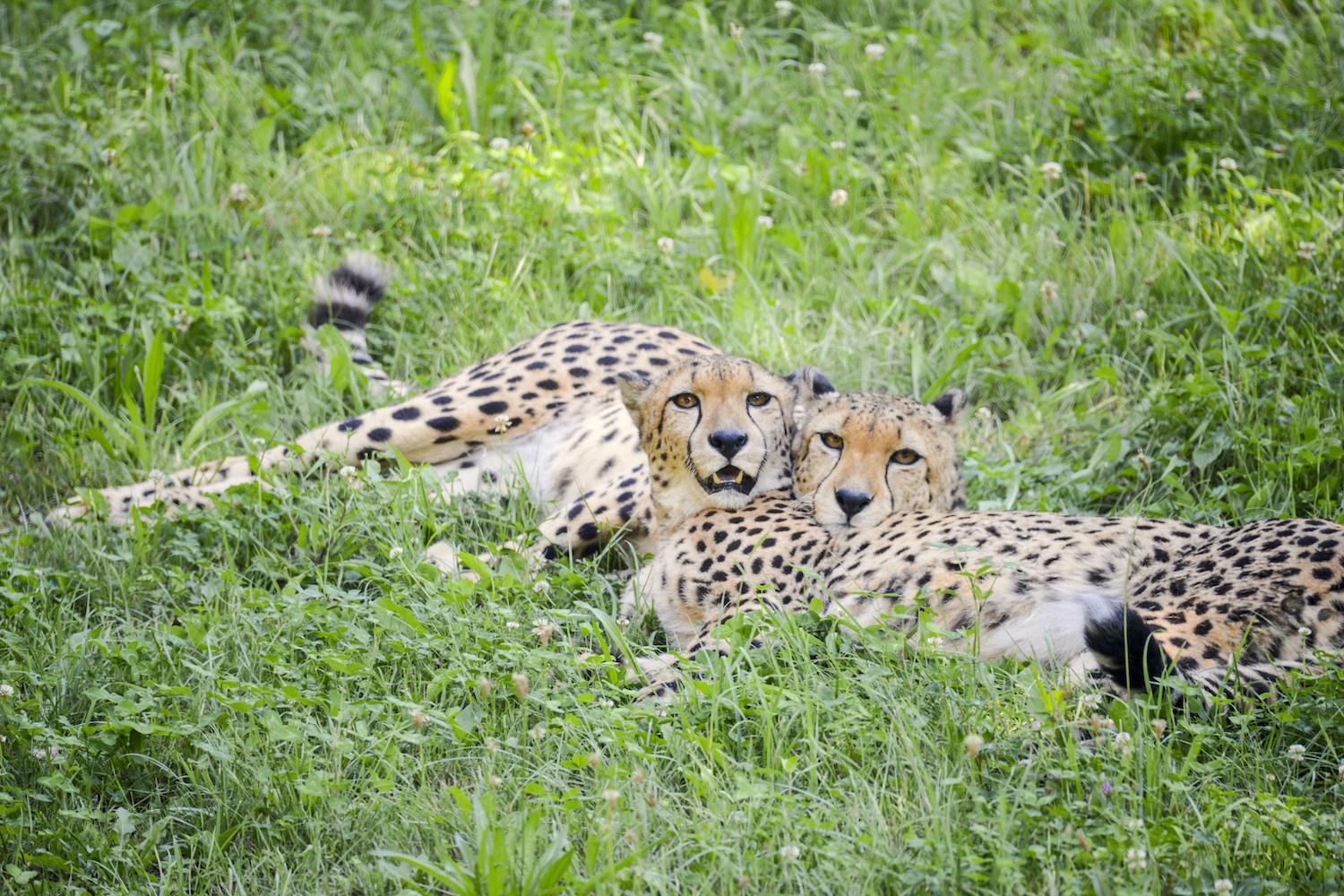 |
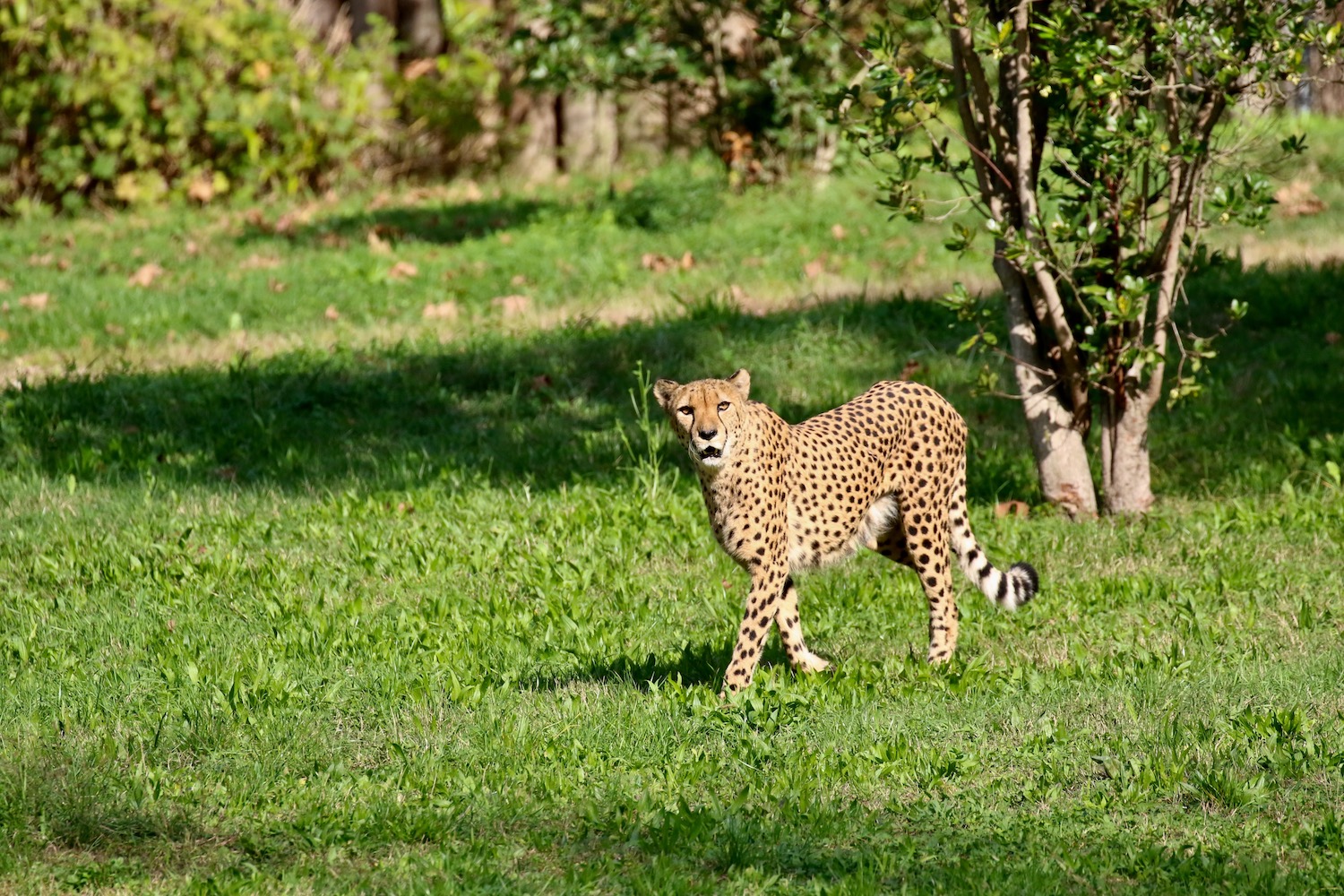 |
Every 4th of December, Parco Natura Viva, together with the Cheetah Conservation Fund, celebrates the International Cheetah Day. This date is the birthday of Khayam, the first cheetah raised by Dr Marker, founder of CCF, at the Wildlife Safari Park in Oregon, and then translocated to Namibia in 1977 giving the start to the path that brought to the foundation of CCF in 1990.
In May 2016 Dr Marker was invited by Parco Natura Viva to give a conference open to all visitors on the conservation of this species and raising awareness on the problems faced by them. Educational activities games were also organized to involve the youngest generations.
For the 2019 International Cheetah Day Parco Natura Viva, in collaboration with ARCA (Animal Research and Conservation in Action) Foundation, carried out a Christmas campaign “A cheetah under the tree” for the adoption on the species. Thirty-one were the adoptions made and all donations allowed the sponsorship of Dominic, an Anatolian shepherd trained in order to reduce the conflict between shepherds and cheetahs in Somaliland.
In May 2016 Dr Marker was invited by Parco Natura Viva to give a conference open to all visitors on the conservation of this species and raising awareness on the problems faced by them. Educational activities games were also organized to involve the youngest generations.
For the 2019 International Cheetah Day Parco Natura Viva, in collaboration with ARCA (Animal Research and Conservation in Action) Foundation, carried out a Christmas campaign “A cheetah under the tree” for the adoption on the species. Thirty-one were the adoptions made and all donations allowed the sponsorship of Dominic, an Anatolian shepherd trained in order to reduce the conflict between shepherds and cheetahs in Somaliland.
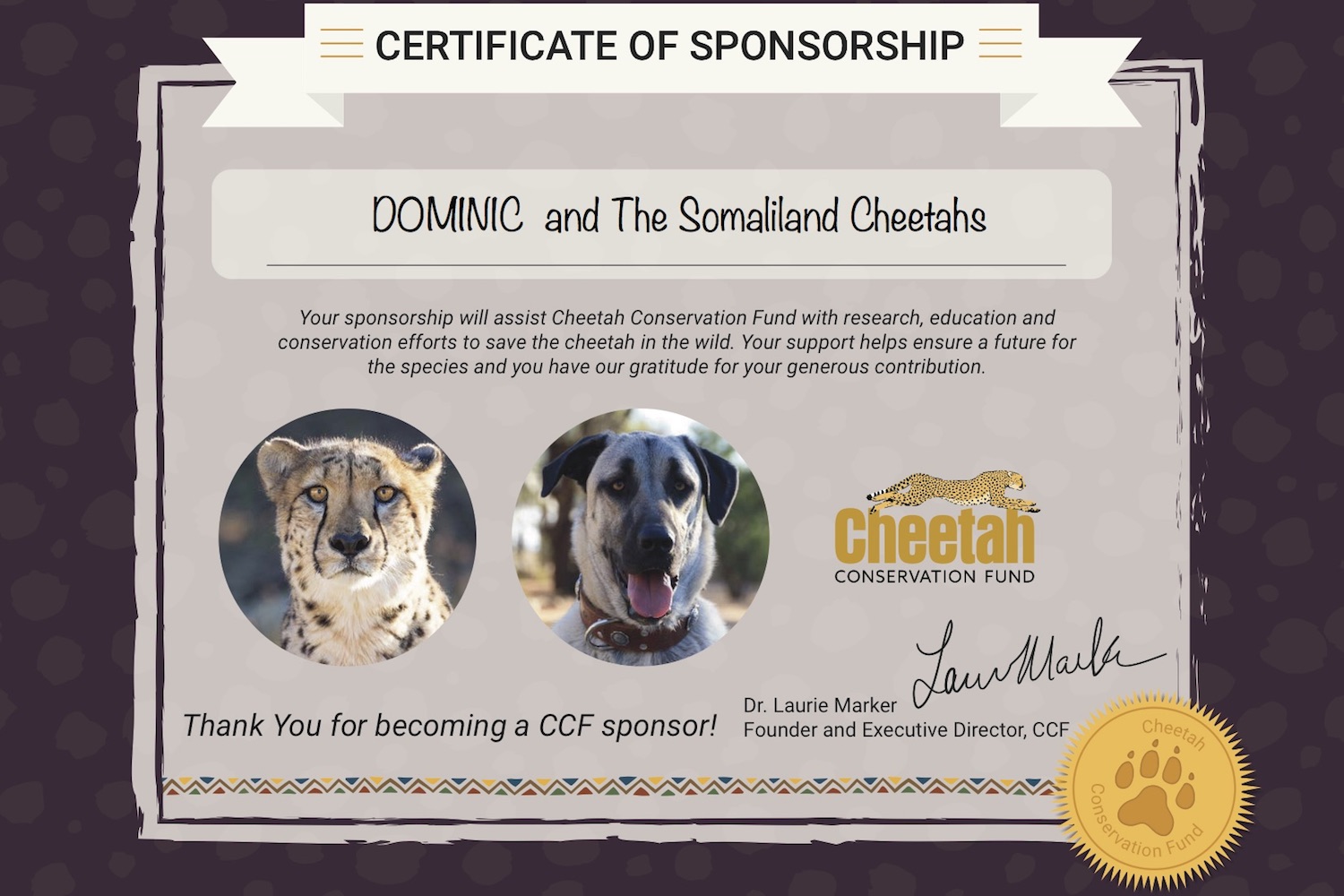 |
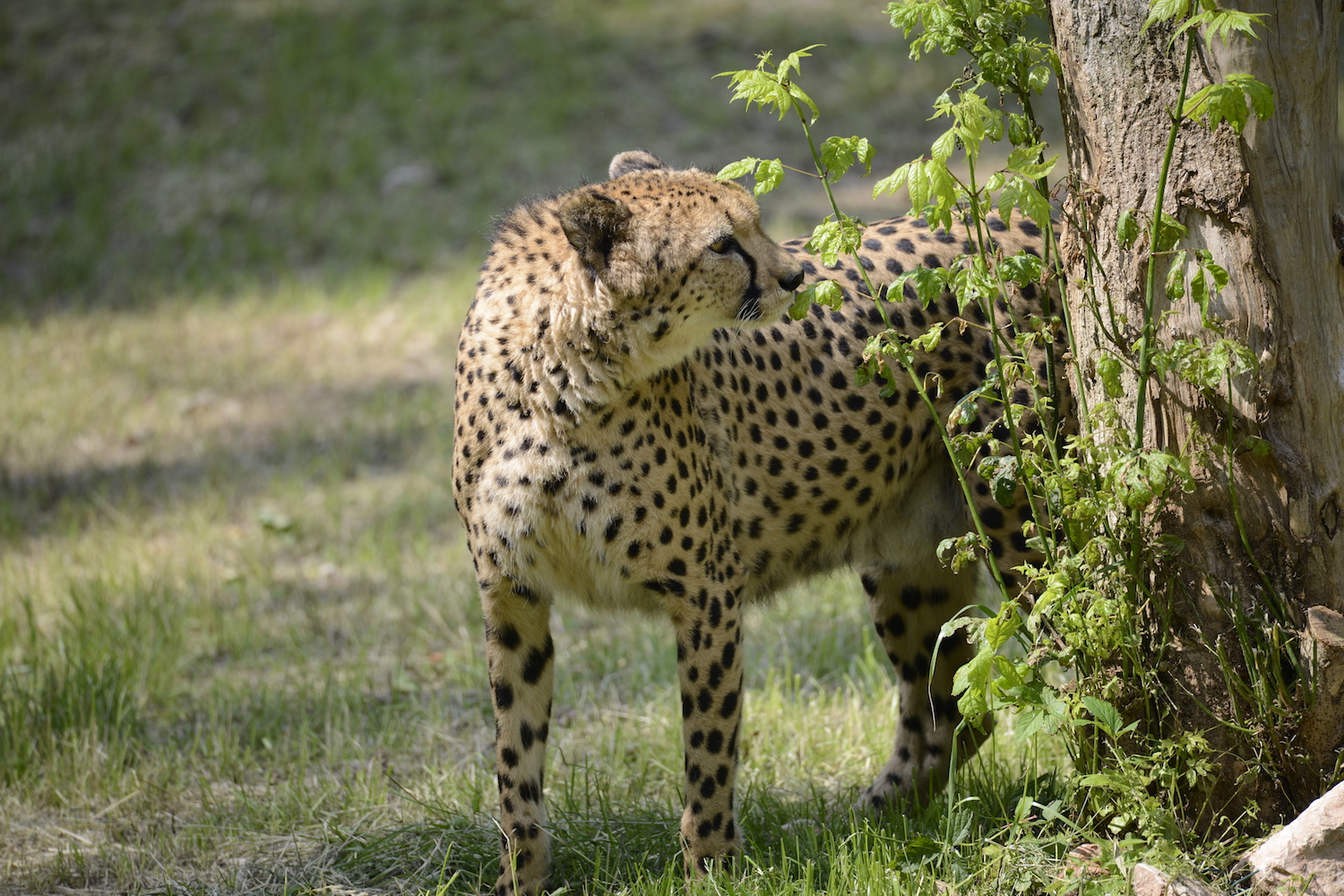 |
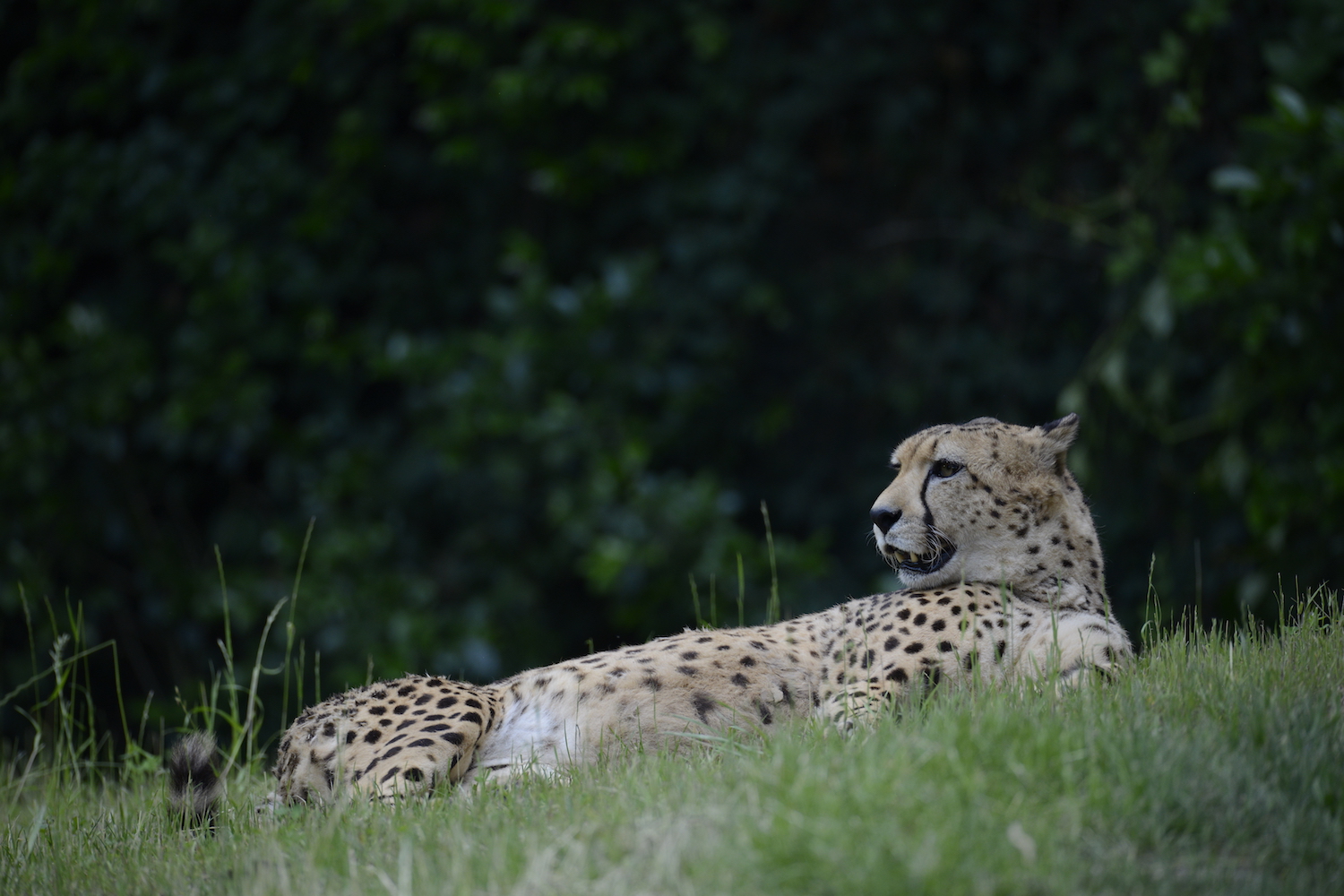 |
If you are interested in this project and you want to help saving cheetahs and their habitat, there are different ways in which you can contribute. By participating to the activities organized by Parco Natura Viva, such as guided tours, educational workshops and the International Cheetah Day, you can learn more about this species and the threats to its survival, also learning what behaviours to adopt in everyday life to protect their habitat. By adopting the park’s cheetahs you will directly contribute to help finance this project; but even with your visit to the park you will be able to make a concrete contribution to conservation, since a percentage of the value of the admission ticket is always destined to in situ conservation projects. Finally, by making other people aware of the problems of animals in the wild, you can actively help spread the knowledge and guarantee a future for cheetahs in their natural environment.
 Italiano
Italiano English
English Deutsch
Deutsch

